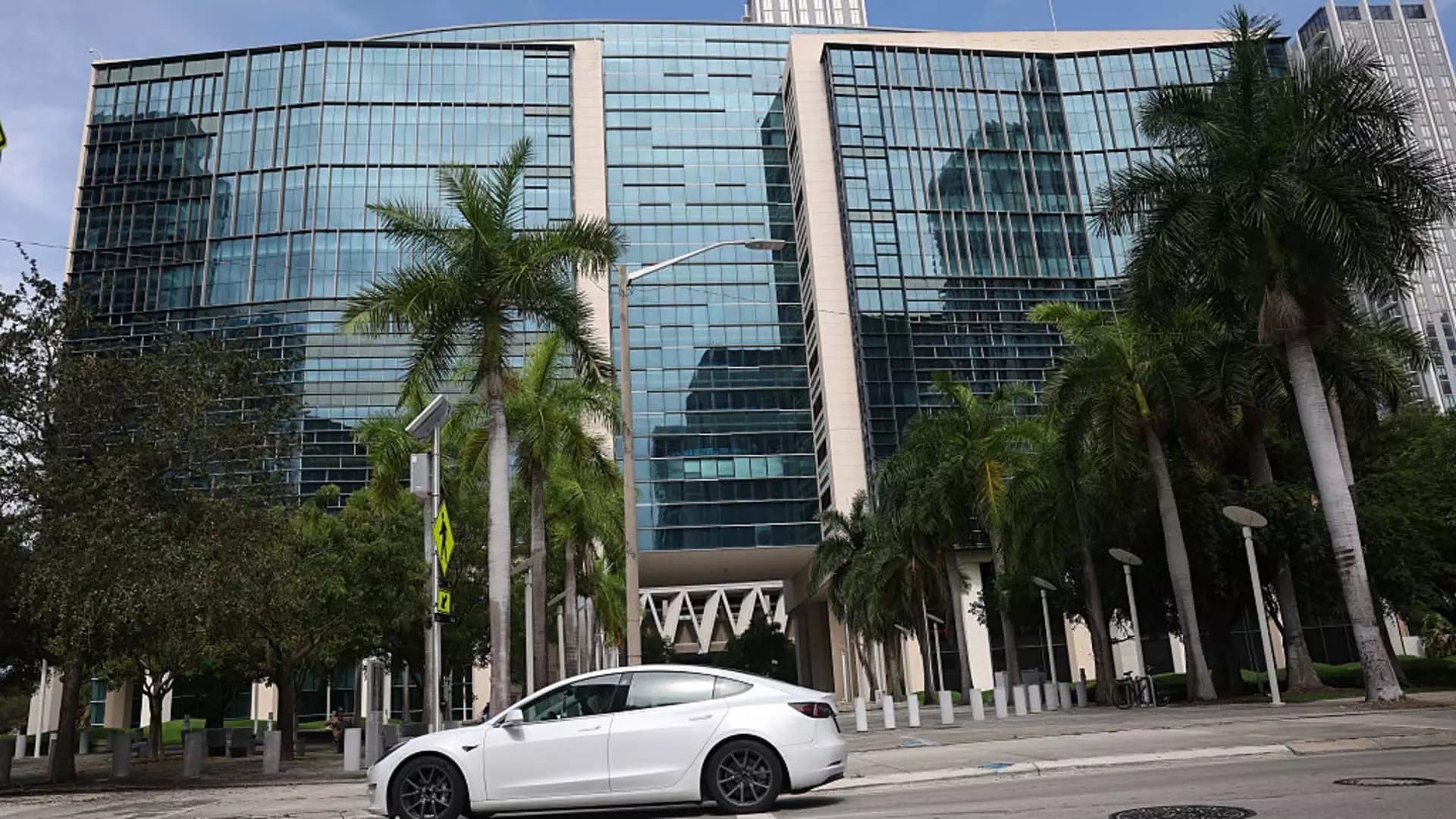Tesla, the heralded beacon of electric vehicle innovation, now faces a pivotal moment that could redefine its legacy. The recent court case stemming from a fatal crash involving Tesla’s Autopilot system highlights a troubling question: has the pursuit of technological advancement overshadowed the fundamental responsibility to ensure safety? As the trial unfolds, it exposes potential lapses in oversight, transparency, and accountability that cast a shadow over Tesla’s celebrated image as a pioneer of autonomy. The case isn’t merely about a single tragic accident; it’s a stark litmus test on whether technological progress can justify a lax attitude toward risk mitigation.
The plaintiffs paint a grim picture. They argue that Tesla’s Autopilot system — touted as a revolutionary step in driving automation — carried dangerous flaws that the company was either unwilling or slow to fix. This raises an uncomfortable truth about Silicon Valley’s innovation culture: does relentless pursuit of dominance and market share justify overlooking the most basic tenets of consumer safety? Elon Musk’s hubris and promotional bravado have long propelled Tesla into the inflexible spotlight, but now, that very bravado appears to threaten lives.
Overpromising and Underwhelming Safety?
Musk’s leadership has been characterized by confident promises about autonomous driving capabilities. Yet, these statements may have fostered misplaced trust among consumers relying heavily on Autopilot. The trial reveals a troubling disconnect: marketing that suggests a level of sophistication and safety that the system potentially lacks. The problem lies in the messaging — Tesla’s narrative seems more focused on market positioning than on transparent communication about system limitations.
The defense’s argument that Tesla responsibly instructs users on proper Autopilot use rings hollow amidst the evidence of overstatement. It appears that promotional language may have inadvertently encouraged complacency, with drivers assuming that Autopilot could handle complex situations. This overreliance arguably contributed to the tragic outcome. The broader issue is whether Tesla, rather than prioritizing safety, made calculated decisions to placate investors and shareholders at the expense of truth.
The Moral Quandary: Profits versus Lives
This case underscores a critical ethical dilemma: should profit motives take precedence over human safety? Tesla’s aggressive push into automation aimed to revolutionize transportation, but at what cost? The court’s scrutiny is justified because it embodies the question of whether Tesla’s pursuit of technological “firsts” led to reckless risk-taking. The assertion that Tesla acted in reckless disregard for life, as the judge noted, is a damning indictment, suggesting that the company’s prioritization of innovation may have crossed ethical boundaries.
Tesla’s approach seems symptomatic of a broader corporate mindset that values market share and technological leadership over robust safety protocols. The sacrifices made — possibly including insufficient testing, rushed feature rollouts, and aggressive marketing — exemplify a troubling trend: valuing short-term gains while neglecting long-term responsibility. This mentality risks setting a dangerous precedent in the rapidly evolving landscape of autonomous vehicles.
The Broader Impact and a Call for Accountability
This trial serves as a vital moment for consumers and regulators alike to demand greater accountability from tech-driven industries. As Tesla faces the possibility of substantial damages, it becomes clear that technological innovation cannot be divorced from moral responsibility. Autopilot, once heralded as humanity’s step into the future, now stands as a cautionary tale of hubris and neglect.
In the larger context, this case should serve as a wake-up call: automated systems must undergo rigorous testing, transparent communication is essential, and corporate leaders must accept that safety is non-negotiable. Elon Musk’s Tesla has been a trailblazer, but technological leadership comes with a moral obligation that seemingly has been overlooked. If the industry continues down this path without accountability, it risks repeating past mistakes on a catastrophic scale. The verdict rendered in this case may not only impact Tesla’s future but also shape the regulatory landscape of autonomous vehicles for generations to come.

